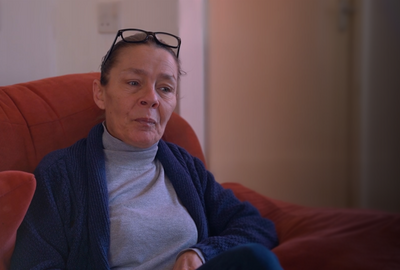Sections you should include on your support worker CV include:
- work history
- achievements
- education and qualifications
- interests and personal qualities
Preparing an effective CV can be a challenge for anyone or any job. As the job market gets increasingly competitive, it is all the more important to get it right. Writing a clear and concise CV is an important step when applying for any permanent position. It will not get you a job on its own, but a good CV will get you closer to the interview that will.
As employers will usually accept or reject an initial application based on a CV and maybe a covering letter, it’s vital that you get this right, otherwise you can struggle just to get an interview.
Presentation and layout for a strong support worker CV.
Use one clear font for all your CV otherwise it can become difficult to read, and your CV may be quickly discarded. Keep it to the point; CVs shouldn't be over two pages long.
Keep your CV clear to highlight key information. This can be done by using bullet points, headings and similar tools. Don't include photographs, images, coloured paper or bindings unless specifically asked by the hiring company.
Content
Start with personal contact details so people know how to get a hold of you.
Use a sensible e-mail address - something like firstname.lastname@email.com
Don't include your date of birth or national insurance number, it’s simply not needed.
"use the job description to identify the strengths and qualities they are looking for"
Include a short summary of your key strengths and qualities - around 50 words. It’s best to do this after writing your CV so you can pick the important information out. Use the job description to identify the strengths/qualities they are looking for.
Career history in support work:
- start with most recent employment.
- give details of your position, job title, time in most recent role, responsibilities, skills and any notable achievements
- include any long-term volunteer work in this section.
Amend your CV to the job you’re applying for - highlight skills and experience they’ve specifically asked for. List qualifications, education and training without going into too much detail.
Avoid abbreviations, company or technical jargon. Don’t leave gaps in your career history - account for any breaks by describing activities when not employed, e.g. volunteer work, workshops, training, etc.
Don’t include any pay information - it can exclude you at an early stage. If they ask, include it in a covering letter.
Unless specified otherwise on the job advert, references aren’t usually looked at until later on in the application process. You can either leave these off, or simply put ‘References available upon request’ at the bottom of your CV.
Work history
A CV is not just a list of accomplishments; it has to make them relevant to the job you’re applying for, to tempt the employer to bring you in for an interview. This means that each listed position should be followed by examples of the duties it involved and the skills you learnt or improved.
Start with your most recent employment and work backwards. You should provide the following information:
- name of employer and what the company does
- job title & accurate dates of employment
- responsibilities and duties.
Achievements
If there are any changes in job roles, (for example you work in a high-street shop as a cashier then become a team leader) list these as a separate entry with the company as a main header and each role a sub-heading.
Make sure all employment/education gaps in your CV are explained, and use the opportunity to discuss any skills you may have been developing in that time.
In these gaps, highlight any skills you may have developed, and bring it back to what the employer is looking for. Make it a positive entry on your CV.
"include any volunteer work in your work history"
This section can be hardest for graduates as their CVs will have more in the education field. This is not a problem, as many people will be in a similar situation to you. There are a few things you can do, however, to boost this section.
If you have done any volunteer work, or held a position at a society, you can include this in the work history. Talk about the duties you had in the role, and skills you gained which can be linked into the workplace.
Education and qualifications
If the job description requires you to have any qualifications that you can show from education, you need this to be made very clear in this section. Highlight it in either your personal summary or covering letter, but also include it here. If you have a long work history covered in your employment section, the education section can be kept very brief:
- list your education from most recent back, with grade and skills gained, giving the name for each education body
- for anything in the last four years, it can be worth including the dates to show it’s up-to-date
- anything further back than that, the dates are not relevant to the information
- you only need to list the last one or two qualifications you’ve achieved, along with anything they’ve named as required or desired for the job.
If you have recently left education, or do not have much work history, then you should expand more around your education. Explain around the skills you gained in your education - how you developed those skills and give examples from your education where you developed those skills, e.g. group projects you worked on, presentations you made.
Talk around any extra-curriculum activities you took part in while in your studies, and how this has helped develop you - for example, did the institute have any volunteer opportunities or sports teams?
Interests and personal qualities
This section should be short and to the point. While it helps to give the employer a better idea of you, they are more interested in your skills and experiences.
Keep them varied, and include anything a bit different to help you stand out, e.g. climbing a mountain for charity or going skydiving can show how you like to stretch yourself and set ambitious goals
Hopefully you are now ready to go with your CV which leaves the cover letter to do. Click here for more fantastic tips on how to write a cover letter that increases your chances of securing that role.



